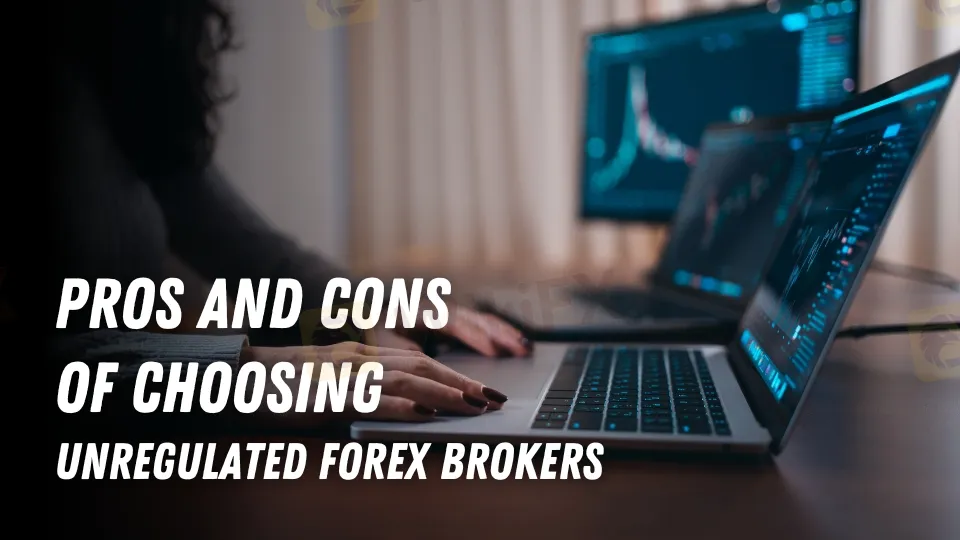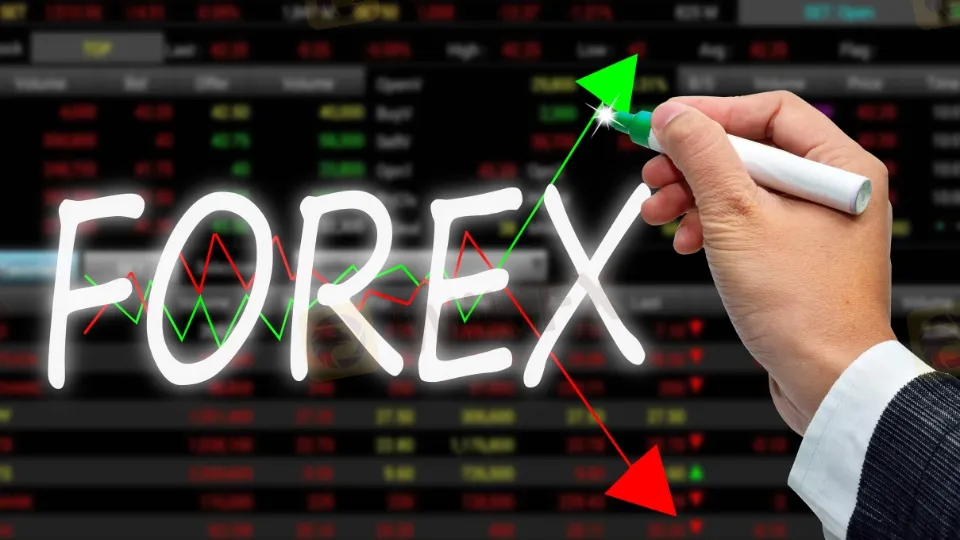简体中文
繁體中文
English
Pусский
日本語
ภาษาไทย
Tiếng Việt
Bahasa Indonesia
Español
हिन्दी
Filippiiniläinen
Français
Deutsch
Português
Türkçe
한국어
العربية
Pros and Cons of Choosing Unregulated Forex Brokers
Abstract:Discover the pros and cons of unregulated forex brokers, explore risks, benefits, and key features, and learn how to evaluate their credibility with the WikiFX app.

Regulated vs. Unregulated Forex Brokers Explained
The forex market is one of the largest and most accessible financial markets globally. Brokers act as intermediaries between traders and the forex market, but not all brokers operate under the same standards. Regulated brokers adhere to guidelines set by financial authorities, ensuring transparency, fair practices, and the protection of trader funds. They are accountable to organizations such as the Financial Conduct Authority (FCA) or the Australian Securities and Investments Commission (ASIC).
On the other hand, unregulated brokers operate without oversight. They are not bound by stringent legal requirements or industry standards. While this may offer some unique opportunities, it also introduces significant risks. Understanding the differences between these two types of brokers is crucial for making informed trading decisions.
Benefits of Using Unregulated Forex Brokers
Despite the risks, some traders choose unregulated brokers for specific advantages. These benefits include:
- Lower Costs: Unregulated brokers often offer lower fees, tighter spreads, and higher leverage compared to regulated ones.
- Fewer Restrictions: Traders may find more flexibility in trading conditions, including less stringent margin requirements and broader asset offerings.
- Innovative Features: Without regulatory constraints, unregulated brokers may introduce creative trading tools, platforms, or bonus structures to attract clients.
These factors can appeal to experienced traders who know how to mitigate risks and capitalize on opportunities.

Risks of Trading with Unregulated Forex Brokers
Trading with unregulated brokers is fraught with potential dangers, including:
- Lack of Accountability: These brokers are not answerable to any financial authority, which increases the likelihood of fraudulent behavior.
- Fund Safety Concerns: Without proper oversight, your deposited funds might not be securely held in segregated accounts, exposing you to losses if the broker collapses.
- Scam Potential: Many unregulated brokers operate scam schemes, disappearing with client funds or manipulating trades to their advantage.
Due diligence is essential when engaging with such brokers to avoid these pitfalls.
Top Features of Unregulated Forex Brokers
While risks exist, unregulated brokers often entice traders with attractive features:
- High Leverage: Offering leverage ratios as high as 1:1000, which is significantly higher than what regulated brokers provide.
- Bonuses and Promotions: Generous welcome bonuses and trading incentives are common to attract new clients.
- Wide Asset Selection: These brokers may offer a diverse range of assets, including exotic currency pairs and cryptocurrencies.
These features are designed to draw traders, but they come with potential downsides that require careful consideration.
Checking the Credibility of Unregulated Forex Brokers
Verifying the credibility of an unregulated broker is a critical step for traders. This process involves:
- Researching Online Reviews: Look for client feedback to understand other traders experiences.
- Using Tools Like WikiFX: The WikiFX app provides comprehensive details about brokers, including their history, client reviews, and risk ratings. This makes it easier to identify red flags before investing your money.
- Testing Customer Support: Reliable brokers, even unregulated ones, should provide prompt and professional support services.
Utilizing resources like WikiFX can significantly reduce the risks associated with unregulated brokers.

Warning Signs in Unregulated Broker Practices
Be vigilant for these red flags when dealing with unregulated brokers:
- Unrealistic Promises: Guarantees of high, risk-free returns are often too good to be true.
- Unclear Withdrawal Processes: Hidden fees or delayed withdrawals indicate a lack of transparency.
- Aggressive Marketing Tactics: Brokers that pressure you into investing large sums quickly are likely prioritizing their gain over your financial safety.
Spotting these signs early can save you from significant financial losses.
Effects of Unregulated Brokers on Trader Profits
Unregulated brokers can directly impact your profitability in several ways:
- Unfair Practices: They may engage in price manipulation or trade delays, skewing results in their favor.
- Hidden Costs: Surprise fees can erode your profits over time.
- Market Access Issues: Limited access to quality trading platforms or liquidity providers can result in suboptimal trade execution.
While some traders manage to succeed with unregulated brokers, the lack of protection often means profits are less secure.
Final Thoughts
Choosing an unregulated forex broker can be a double-edged sword. While they offer attractive incentives such as lower costs, higher leverage, and innovative features, the risks—from fund insecurity to potential scams—are significant. Traders must weigh these factors carefully and prioritize thorough research before committing.
Using tools like the WikiFX app can help you assess the credibility of unregulated brokers, making it an invaluable resource for safeguarding your investments. Whether youre a seasoned trader or a novice, remember that financial safety and informed decisions should always come first.

Disclaimer:
The views in this article only represent the author's personal views, and do not constitute investment advice on this platform. This platform does not guarantee the accuracy, completeness and timeliness of the information in the article, and will not be liable for any loss caused by the use of or reliance on the information in the article.
Read more

IG Group Enters Direct Investment Market with £160 Million Freetrade Buyout
IG Group, a prominent global financial trading and investment company, has announced its acquisition of Freetrade, a commission-free investment platform, for £160 million. The deal, funded through IG’s existing capital resources, marks a strategic move to expand its footprint in the United Kingdom.

Cinkciarz.pl Under Fire: Frozen Accounts, Missing Funds
Cinkciarz.pl, one of Central Europe’s largest currency exchange platforms, has made headlines after accusing major Polish banks of conspiring to undermine its operations. The company has threatened legal action amounting to 6.76 billion zlotys ($1.6 billion) in damages. However, the platform is now under intense scrutiny following allegations of fraud and the mismanagement of customer funds.

BSP and JICA Renew Partnership to Expand Credit Risk Database for SMEs in the Philippines
On December 11, 2024, a significant milestone was reached in the Philippines' financial sector as the Bangko Sentral ng Pilipinas (BSP) and the Japan International Cooperation Agency (JICA) officially signed the ‘Records of Discussion’ for the second phase of the Credit Risk Database (CRD) project. The ceremony at the BSP headquarters in Manila marked a pivotal moment in widening access to financing for small and medium enterprises (SMEs) across the country.

Why Copy Trading is Perfect for New Investors
Learn why copy trading is ideal for new investors. Follow expert traders, minimize risks, and start earning confidently—no prior expertise is required.
WikiFX Broker
Latest News
How Long Can the Dollar Remain Strong?
Forex Price Trend Prediction! | Come be a New Year Price Winner!
HFM NY Special Offer!
How a Promised RM1.4 Million Return Turned into a Costly Scam
First Unfair Trading Case Reported Under South Korea’s Virtual Asset User Protection Act
Cinkciarz.pl Under Fire: Frozen Accounts, Missing Funds
“Predict and Win” Big Rewards! Join the Contest Now
South Korean President Yoon Suk Yeol's Arrest Shakes Markets
Titanium Capital LLC Ponzi Scheme: Henry Abdo Admits Fraud, Impacting Over 200 Investors
South Korea's Crypto Regulation Updates for 2025
Currency Calculator






